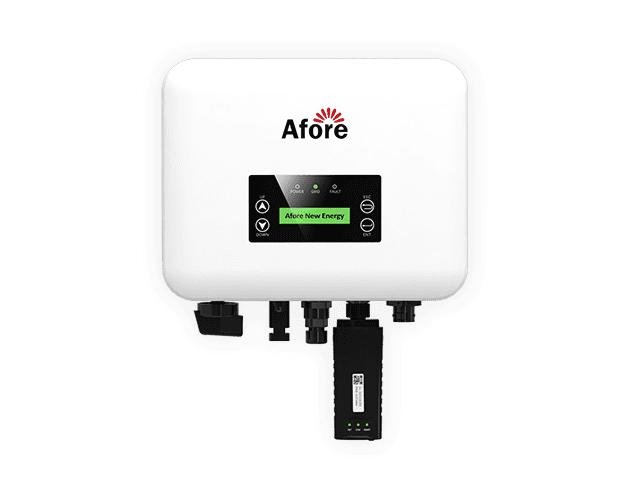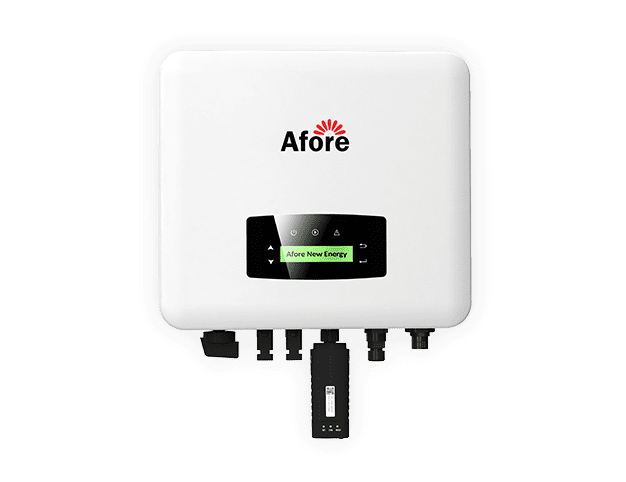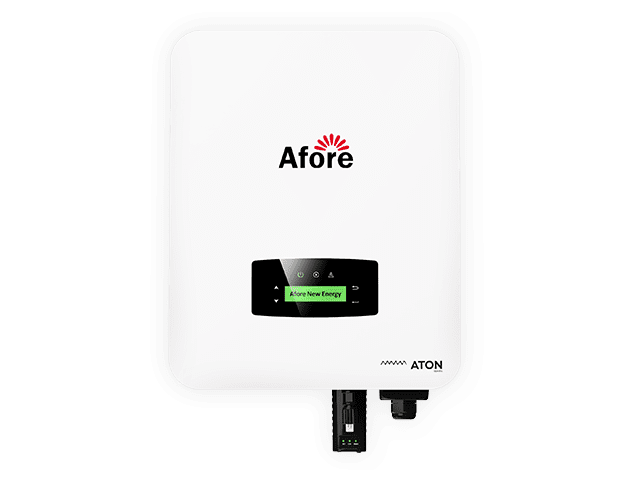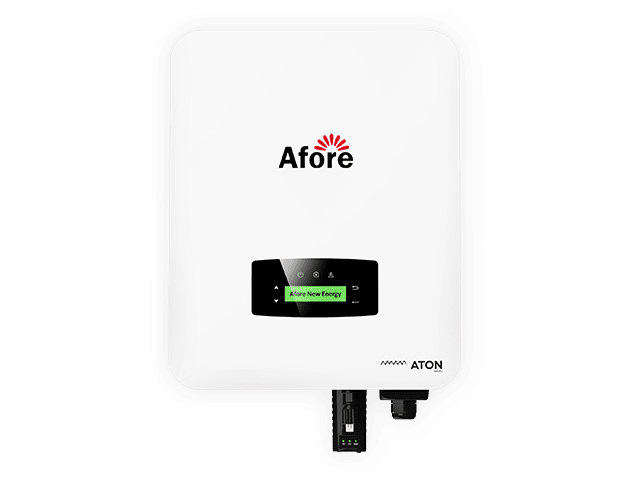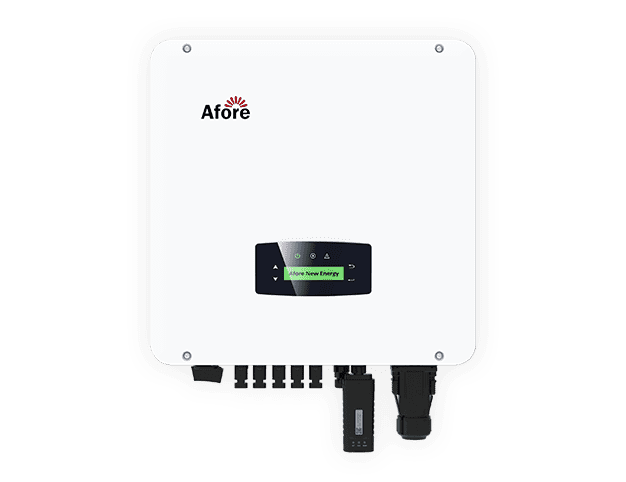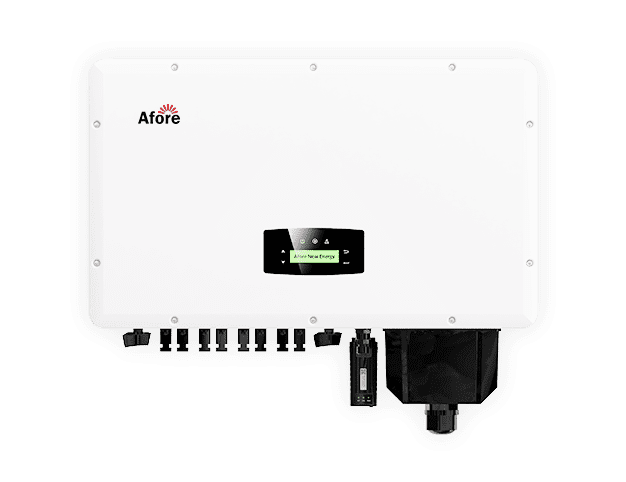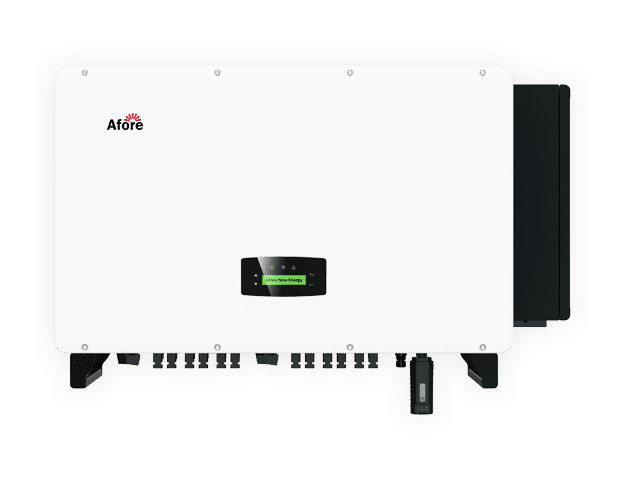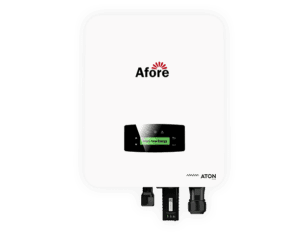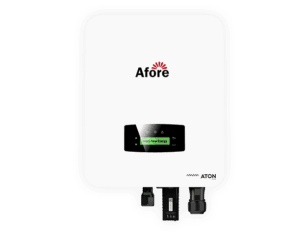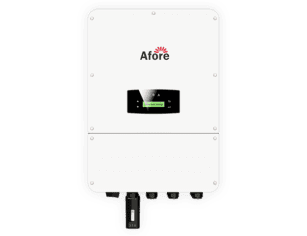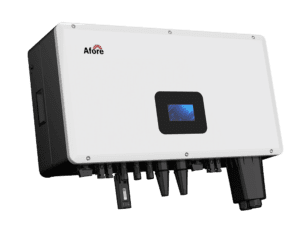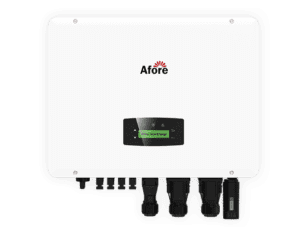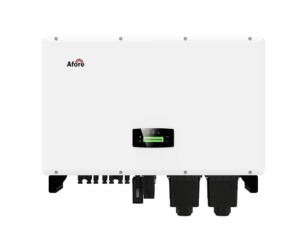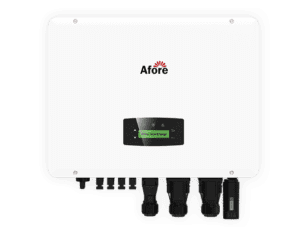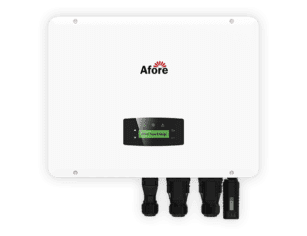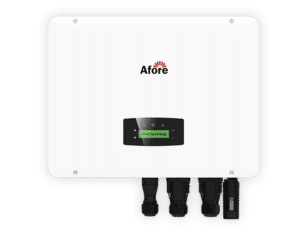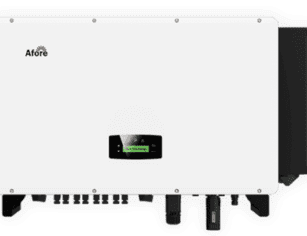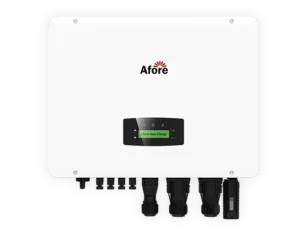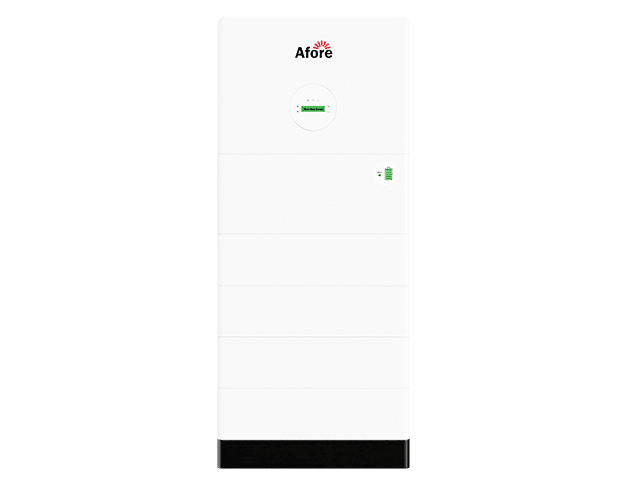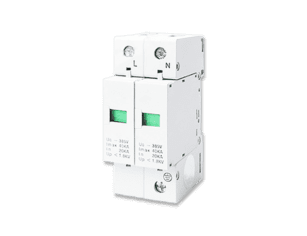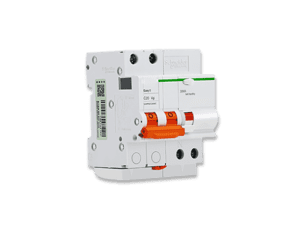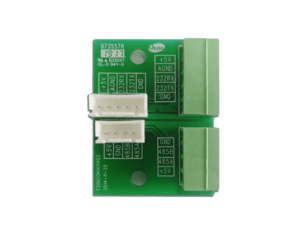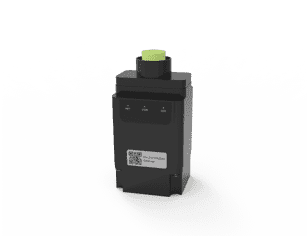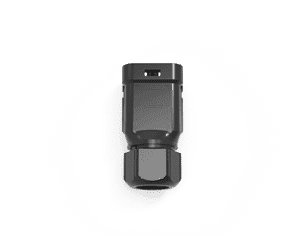Zrozumienie pojemności akumulatora – przeliczanie Ah na kWh

Spis treści
W dzisiejszych czasach wiedza o tym, jak ważna jest pojemność baterii, jest naprawdę oczywista. Ważne jest, aby to wiedzieć, niezależnie od tego, czy badasz energię słoneczną, jeździsz samochodem elektrycznym, czy po prostu próbujesz zrozumieć potrzeby energetyczne swojego urządzenia. Nauczenie się przeliczania Ah na kWh pozwala lepiej kontrolować moc i wydajność akumulatora. Jeśli chodzi o specyfikacje baterii, jednym z często zadawanych pytań jest: co to jest Ah w baterii? Jak wpływa to na wydajność akumulatora?
Jeśli nie jesteś zaznajomiony z terminologią dotyczącą akumulatorów, możesz zadawać sobie pytanie, co oznacza Ah w akumulatorach. Amperogodzina (Ah) mierzy poziom naładowania akumulatora. Jest to ładunek przenoszony przez jeden amper w ciągu jednej godziny. Z kolei kilowatogodzina (kWh) oznacza energię zużytą lub wytworzoną przez jeden kilowat w ciągu godziny.
Zależność między Ah i kWh zależy od napięcia (V) akumulatora; dlatego bardzo ważne jest uwzględnienie napięcia w obliczeniach, aby uzyskać dokładne wyniki. Wzór jest prosty: kWh = (Ah x V) / 1000.
Akumulator 100 Ah 51,2 V ma pojemność 5,12 kWh. Dzięki tej wskazówce możesz swobodnie przeliczać Ah na kWh i z łatwością zarządzać swoją energią.
Czytaj dalej, aby dowiedzieć się więcej o tych ważnych miarach energii, począwszy od podstaw, a skończywszy na tym, jak odnoszą się one do siebie nawzajem i jak są wykorzystywane w świecie rzeczywistym.

Podstawy pojemności baterii
Co oznacza Ah w bateriach?
Być może ciekawi Cię, co tak naprawdę oznacza liczba Ah na akumulatorze. Jeśli chodzi o pojemność akumulatora, istnieją dwie szczególnie ważne jednostki, które należy znać: amperogodziny (Ah) i kilowatogodziny (kWh). Co oznacza wartość Ah na akumulatorze? W rzeczywistości jest to dość łatwe do zrozumienia. Amperogodziny służą do pomiaru ilości ładunku w akumulatorze. Informują one o tym, ile prądu akumulator może rozładować w danym okresie czasu.
Na przykład, akumulator o pojemności 100 Ah może dostarczać prąd o natężeniu 100 A przez godzinę; oczywiście, jeśli natężenie prądu zostanie zmniejszone do 10 A, akumulator będzie pracował przez dziesięć godzin.
Definicja kilowatogodzin (kWh)
Kilowatogodziny (kWh) odzwierciedlają zużycie energii w czasie. Jeśli zasilasz urządzenie 1 kilowatem przez godzinę, zużywa ono 1 kWh energii; jest to powszechnie stosowane do pomiaru zużycia i produkcji energii elektrycznej i jest bardzo ważne dla zrozumienia, ile energii jest przechowywane w akumulatorze.
Wzór na zamianę Ah na kWh jest prosty, ale bardzo przydatny. Musisz znać wartość znamionową Ah i napięcie (V) akumulatora. Załóżmy, że akumulator 24 V, 200 Ah ma zdolność magazynowania energii 4,8 kWh, skąd to się bierze? Jest to 200 Ah pomnożone przez 24 V, a następnie podzielone przez 1000.
Oznacza to, że akumulator może zasilać urządzenie o mocy 1 kW przez prawie 4,8 godziny w optymalnych warunkach.
Znaczenie Ah i kWh
Aby wiedzieć, czy akumulator jest wydajny, czy nie, nie można pominąć dwóch wskaźników: Ah i kWh: Ah oznacza, ile prądu może przepuścić bateria, czyli jak dużą siłą dysponuje; a kWh, czyli ile energii elektrycznej bateria może zmagazynować lub ile energii elektrycznej może dostarczyć, czyli jak duży jest jej magazyn energii. Rozumiejąc te dwie rzeczy, można wybrać odpowiednią baterię dla siebie, ale także obliczyć zużycie energii i ile pieniędzy należy wydać, jakie to praktyczne!
Bardzo ważne jest, aby zrozumieć, co oznacza Ah w akumulatorach i jak przeliczyć Ah na kWh podczas planowania rozwiązań magazynowania energii; pomaga nam to oszacować, ile akumulatorów potrzebujemy, aby zaspokoić nasze zapotrzebowanie na energię. Gwarantuje to, że nasze konfiguracje – czy to do tworzenia kopii zapasowych w domu, czy do systemów energii słonecznej poza siecią – są zarówno wydajne, jak i niezawodne.
Zależność między Ah i kWh
Aby lepiej zrozumieć związek między ah i kwh, będziesz w stanie mądrzej wybrać odpowiednie dla siebie źródło energii!
Połączenie Ah i kWh
Połączenie Ah i kWh jest złożone i wymaga jeszcze jednego ważnego czynnika: napięcia. Napięcie lub ciśnienie elektryczne ma kluczowe znaczenie w tych konwersjach; zmienia się w zależności od systemu i ma duży wpływ na wytwarzaną energię.
Wzór na przeliczenie Ah na kWh jest następujący: kWh = Ah * Volts / 1000. Na przykład akumulator 51,2 V o pojemności 100 Ah mieści 5,12 kWh energii. Oznacza to, że akumulator 12 V o pojemności 100 Ah to 1,2 kWh, system 24 V to 2,4 kWh, a system 48 V to 4,8 kWh. Oto więcej przykładów konwersji dla różnych systemów:
Dla systemu 12V:
- 100Ah zapewnia 1,2 kWh
- 150Ah zapewnia 1,8 kWh
- 200Ah oferuje 2,4 kWh
- 280Ah to 3,36 kWh
- 300Ah daje 3,6 kWh
- 400Ah przekłada się na 4,8 kWh
Dla systemu 24 V:
- 100Ah zapewnia 2,4 kWh
- 150Ah zapewnia 3,6 kWh
- 200Ah oferuje 4,8 kWh
- 280Ah to 6,72 kWh
- 300Ah daje 7,2 kWh
- 400Ah przekłada się na 9,6 kWh
Dla systemu 48 V:
- 100Ah zapewnia 4,8 kWh
- 150Ah zapewnia 7,2 kWh
- 200Ah oferuje 9,6 kWh
- 280Ah to 13,44 kWh
- 300Ah daje 14,4 kWh
- 400Ah przekłada się na 19,2 kWh
Znaczenie napięcia w konwersjach
Napięcie odgrywa ważną rolę w konwersji Ah na kWh. Bez znajomości napięcia akumulatora dokładna konwersja nie jest możliwa; dlatego bardzo ważne jest, aby mieć te informacje podczas konwersji.
Jak przeliczyć Ah na kWh?
Bardzo ważne jest, aby wiedzieć, jak zamienić Ah na kWh w celu magazynowania energii. Używamy podstawowego wzoru do konwersji między amperogodzinami (Ah) i kilowatogodzinami (kWh).
Podstawowa formuła konwersji
Wzór jest następujący: kWh = (Ah * V) / 1 000. Ułatwia to zrozumienie pojemności energetycznej.
Przewodnik krok po kroku dotyczący konwersji Ah na kWh
Przejdźmy przez to krok po kroku:
W pierwszej kolejności należy sprawdzić wartość znamionową amperogodzin (Ah) akumulatora. Na przykład akumulator może mieć pojemność 200 Ah. Następnie należy określić napięcie (V) systemu. Typowe napięcia to 12V, 24V, 48V i więcej dla większych systemów. Załóżmy, że używamy 48V. Następnie wprowadź liczby do wzoru. Używając naszego przykładu: kWh = (200 Ah * 48 V) / 1000. To daje nam: 200*48/1000 = 9,6 kWh.
To obliczenie konwersji Ah na kWh pokazuje, że akumulator 200 Ah przy napięciu 48 V może przechowywać 9,6 kWh.
Typowe błędy, których należy unikać podczas konwersji Ah na kWh
Należy jednak uważać na typowe błędy:
Użycie niewłaściwego napięcia może prowadzić do błędnych obliczeń; upewnij się, że używasz właściwego napięcia znamionowego. Co więcej, nie należy mylić Ah z kWh. Ah pokazuje pojemność, podczas gdy kWh pokazuje energię w czasie.
Rzeczywiste przykłady konwersji Ah na kWh
W przypadku pojazdu elektrycznego z akumulatorem 60 Ah przy napięciu 400 V: kWh = (60 Ah * 400 V) / 1 000 = 24 kWh.
Domowy system solarny z akumulatorem 100 Ah przy napięciu 24 V to: kWh = (100 Ah * 24 V) / 1000 = 2,4 kWh.
Korzystanie z podstawowej formuły konwersji pomaga w wielu obszarach. Jest to bardzo ważne w przypadku pojazdów elektrycznych, energii odnawialnej i nie tylko. Zawsze sprawdzaj swoje liczby, aby uzyskać właściwe konwersje i dobrze zarządzać energią.
Jak przeliczyć kWh na amperogodziny?
Odwrotna formuła zamiany kWh na amperogodziny
Kluczowe znaczenie ma zrozumienie sposobu przeliczania kWh na amperogodziny. Używamy wzoru Ah = (kWh × 1000) ÷ V. Musisz znać energię w kWh i napięcie systemu w woltach (V).
Szczegółowe kroki konwersji:
- Określ energię w kWh.
- Znajdź napięcie akumulatora w woltach.
- Pomnóż kWh przez 1000.
- Podziel wynik przez V, aby uzyskać Ah.
Rzeczywiste przykłady konwersji kWh na amperogodziny
Przyjrzyjmy się kilku przykładom. Załóżmy, że urządzenie zużywa 6 kWh energii i działa w obwodzie 120 V. Konwersja jest następująca:
Ah = (6kWh × 1000) ÷ 120V = 50Ah
Wiedza o tym, kiedy należy dokonać konwersji, jest ważna, na przykład podczas konfigurowania systemów zasilania energią słoneczną lub optymalizacji wykorzystania baterii w urządzeniach. Załóżmy, że masz akumulator 10 kWh przy napięciu 12 V przez 10 godzin. Ampery można obliczyć w następujący sposób:
Ah = (10kWh × 1000) ÷ 12V = 833Ah
Konwersja kWh na amperogodziny pomaga lepiej zarządzać energią; jest przydatna zarówno w przypadku małych akumulatorów, jak i dużych systemów elektrycznych. Niezależnie od tego, czy jesteś obeznany z technologią, czy dopiero zaczynasz, poznanie tego wzoru usprawni zarządzanie energią.
Kiedy należy przeliczyć kWh na amperogodziny?
- Dobór i wymiarowanie akumulatora: Przy wyborze akumulatora do konkretnego zastosowania może być konieczna znajomość pojemności akumulatora mierzonej w Ah, aby upewnić się, że zaspokoi on zapotrzebowanie na energię; na przykład przy wyborze ogniwa słonecznego lub zestawu akumulatorów EV należy dopasować pojemność Ah do wymagań energetycznych systemu.
- Obliczenia dotyczące magazynowania energii: W systemach energii odnawialnej, takich jak energia słoneczna lub wiatrowa, konwersja kWh na Ah pomaga w doborze wielkości baterii akumulatorów potrzebnych do magazynowania wytworzonej energii. Jest to bardzo ważne dla zapewnienia, że system może dostarczać energię w okresach niskiego wytwarzania.
- Projektowanie i optymalizacja systemu: Podczas projektowania systemów elektrycznych przeliczanie kilowatogodzin na amperogodziny jest pomocne w optymalizacji komponentów systemu pod kątem wydajności i efektywności energetycznej.
- Analiza wydajności: W motoryzacji i innych zastosowaniach przeliczanie kWh na Ah pozwala analizować skuteczność i wydajność systemu akumulatorów; można określić zużycie energii, zasięg i tryby ładowania.

Narzędzia i kalkulatory do konwersji
Kalkulatory Ah na kWh online
Korzystanie z internetowego kalkulatora Ah na kWh to świetny sposób na zaoszczędzenie czasu i popełnienie mniejszej liczby błędów! Jest bardzo łatwy w użyciu, wystarczy przesunąć palcem, wprowadzić Ah i napięcie, a wartość kWh zostanie natychmiast obliczona. Weźmy jako przykład 100 Ah, po przeliczeniu można wyraźnie zobaczyć zmianę zużycia energii przy różnych napięciach, co w pełni ilustruje, jak ważne jest zarządzanie energią.
Kalkulatory energii online ułatwiają tę konwersję. Mają gotowe wykresy i wzory, takie jak kWh = (Ah * V) / 1000. Tak więc, jeśli wpiszemy 100 Ah i 12V, od razu otrzymamy 1,2 kWh.
Te narzędzia są świetne, ponieważ redukują błędy obliczeniowe; bardzo pomocne dla tych, którzy nie wiedzą zbyt wiele o elektryczności. Próba przeliczenia 500 Ah na 24 V bez narzędzia może skutkować błędem. Ale dzięki internetowemu kalkulatorowi Ah na kWh możemy szybko uzyskać dokładne wyniki.
Korzyści z używania narzędzi do automatycznej konwersji
Narzędzia te ułatwiają również dokonywanie konwersji bez konieczności wykonywania skomplikowanych obliczeń matematycznych. Nawet jeśli nie jesteś obeznany z technologią, możesz z nich korzystać; dzięki temu zarządzanie energią jest łatwiejsze dla wszystkich, od fanów technologii po właścicieli domów, którzy chcą lepiej wykorzystywać energię słoneczną.
Niektóre zaawansowane narzędzia online uwzględniają również wydajność baterii. Biorąc pod uwagę fakt, że baterie nie są w 100% wydajne, kalkulatory te dają nam bardziej realistyczne liczby. Jest to bardzo pomocne podczas planowania zasilania awaryjnego lub korzystania z energii odnawialnej.
Dzięki uproszczeniu konwersji, kalkulatory Ah na kWh online pomagają nam dokonywać lepszych wyborów dotyczących energii; ułatwiają zrozumienie i wykorzystanie magazynowania i zużycia energii.
Praktyczne zastosowania konwersji Ah i kWh
Konwersja Ah na kWh jest niezbędna w wielu praktycznych zastosowaniach, takich jak magazynowanie energii, transport i elektronika użytkowa.
Akumulatory słoneczne i systemy energetyczne
W systemach energii słonecznej zdolność do konwersji między Ah i kWh jest bardzo ważna dla projektowania i doboru wielkości systemu magazynowania baterii. Moduły słoneczne generują prąd stały, który jest zwykle przechowywany w akumulatorach w celu tworzenia kopii zapasowych. Znajomość pojemności baterii w Ah i kWh pomaga zapewnić, że system może przechowywać wystarczającą ilość energii, aby zaspokoić zapotrzebowanie na obciążenie w okresach niskiego promieniowania słonecznego lub w nocy.
Na przykład, jeśli system solarny ma zasilać dom przez trzy dni bez słońca, należy obliczyć całkowite zużycie energii w kilowatogodzinach przez te trzy dni. Następnie, korzystając z napięcia akumulatorów, można przeliczyć to zużycie energii na amperogodziny, aby wiedzieć, jak duży zestaw akumulatorów będzie wystarczający.

Nawiasem mówiąc, jeśli chcesz zoptymalizować swój system solarny, AFORE oferuje różne produkty, takie jak hybrydowy falownik solarny i falownik magazynujący energię, które są wysoce zalecane. Hybrydowy falownik solarny integruje moduły solarne i systemy magazynowania energii, które są w stanie przechowywać nadmiar energii elektrycznej. Oba te rozwiązania mogą zwiększyć efektywność energetyczną, a także stworzyć lepsze i bardziej przyjazne dla środowiska życie.

Pojazdy elektryczne i urządzenia zasilane bateryjnie
Pojazdy elektryczne (EV) i urządzenia zasilane bateryjnie są w dużym stopniu zależne od pojemności baterii w celu określenia ich zasięgu, czasu pracy i wymagań dotyczących ładowania. Zrozumienie pojemności akumulatora w kWh ma kluczowe znaczenie dla dokładnego oszacowania tych parametrów.
W pojazdach elektrycznych wartość znamionowa akumulatora w kilowatogodzinach wskazuje ilość energii, jaką może on zmagazynować; ma to bezpośredni wpływ na zasięg pojazdu. Producenci podają szacunkowy zasięg w oparciu o kilowatogodziny; uwzględniane są również takie czynniki, jak warunki jazdy, masa pojazdu i wydajność aerodynamiczna.
Nawet w przypadku urządzeń zasilanych bateryjnie, w tym rowerów elektrycznych, skuterów i kosiarek do trawy, bardzo pomocna dla użytkowników jest znajomość pojemności baterii w kWh, aby oszacować, jak długo mogą korzystać z urządzenia, zanim będzie trzeba je naładować.
Przenośna elektronika
W smartfonach, laptopach i innych urządzeniach przenośnych pojemność baterii jest oznaczana jako Ah. Ale czy wiesz, że Ah na kWh, możemy lepiej poznać zużycie energii urządzenia, ale także oszacować, jak długo może trwać bez ładowania.
Na przykład, dwie baterie smartfonów z liczbą Ah nie są takie same, napięcie jest również inne, światło niż liczba Ah nie może być dozwolone; muszą być zastąpione przez kWh niż, więc ile magazynowania energii na pierwszy rzut oka, z sercem również więcej liczyć.
Zasilanie awaryjne i życie poza siecią
Systemy zasilania awaryjnego i obiekty mieszkalne poza siecią wymagają zrozumienia pojemności akumulatorów w godzinach (Ah) i kilowatogodzinach (kWh); jest to bardzo ważne, aby zapewnić przechowywanie i dostarczanie energii podczas przerw w dostawie prądu lub w sytuacjach awaryjnych.
W przypadku awarii zasilania lub braku zasilania, zasilacz UPS lub generator staje się naszym wybawieniem. W tym miejscu przydają się baterie, które są odpowiedzialne za zapewnienie wystarczającej ilości energii, aby utrzymać działanie ważnych urządzeń. Rozmiar i pojemność tych akumulatorów zależy od tego, ile mocy potrzebuje obsługiwany sprzęt w sytuacji awaryjnej.
Jeśli chcesz żyć poza siecią, musisz znać pojemność akumulatorów w Ah i kWh. W ten sposób możesz zbudować system energetyczny, który faktycznie zaspokoi Twoje potrzeby.
Krótko mówiąc, znajomość przeliczania Ah i kWh jest podstawową umiejętnością dla każdego, kto zajmuje się magazynowaniem energii, transportem lub elektroniką użytkową. Rozumiejąc te dwie jednostki pojemności baterii, będziesz w stanie podejmować mądrzejsze decyzje i efektywniej wykorzystywać energię. Umiejętność ta jest przydatna niezależnie od tego, czy projektujesz system energii słonecznej, wybierasz akumulator do samochodu elektrycznego, porównujesz zużycie energii przez przenośne urządzenia elektroniczne, czy też upewniasz się, że masz wystarczającą ilość energii zapasowej dla krytycznego sprzętu!
Wnioski
W świecie akumulatorów wiedza o tym, co oznacza Ah w akumulatorach, może mieć duże znaczenie dla wydajności i trwałości; bardzo ważne jest, aby zrozumieć, co oznacza Ah w akumulatorach, aby upewnić się, że przed zakupem akumulatora otrzymasz odpowiedni dla swojego urządzenia.
Co więcej, przeliczanie amperogodzin (Ah) na kilowatogodziny (kWh) ma kluczowe znaczenie dla lepszego wykorzystania baterii. Narzędzia takie jak kalkulator Ah na kWh ułatwiają te obliczenia; znajomość relacji Ah i kWh pomaga w dokonywaniu mądrych wyborów dotyczących czasu pracy urządzenia i zarządzania energią.
Akumulator 100 Ah przy napięciu 12 V odpowiada 1,2 kWh energii. To tyle samo, co akumulator 50 Ah przy napięciu 24 V lub akumulator 25 Ah przy napięciu 48 V. Te przykłady pokazują, jak ważne jest napięcie. Korzystając z kalkulatora Ah na kWh, można zobaczyć, że każda konfiguracja zapewnia około sześciu godzin pracy dla urządzenia o mocy 200 W.
Wybór baterii litowych jest również rozsądny, ponieważ są one bardziej wydajne niż baterie kwasowo-ołowiowe; kalkulator konwersji online jest doskonałym narzędziem do dokładnych obliczeń zapotrzebowania na energię.

FAQ
Jaki jest wzór na przeliczenie Ah na kWh?
Aby zamienić amperogodziny (Ah) na kilowatogodziny (kWh), należy użyć następującego wzoru: kWh = (Ah × V) / 1000. Tutaj V jest napięciem.
Dlaczego napięcie jest ważne przy konwersji Ah na kWh?
Napięcie ma duże znaczenie. Jest ono bardzo ważne w dokładnym przeliczaniu Ah na kWh. Bez niego nie można uzyskać prawidłowego pomiaru energii.
Czy mogę użyć dowolnej wartości napięcia we wzorze konwersji Ah na kWh?
Nie, należy użyć dokładnego napięcia akumulatora lub systemu. Nieprawidłowe wartości napięcia spowodują błędne odczyty energii.
Jak przeliczyć kWh z powrotem na Ah?
Aby zamienić kilowatogodziny (kWh) na amperogodziny (Ah), należy użyć poniższego wzoru: Ah = (kWh × 1000) ÷ V. Należy pamiętać, że V to napięcie systemu.
Jak uniknąć typowych pułapek w obliczeniach konwersji energii?
Upewnij się, że używasz właściwych wartości napięcia i wiesz, jak odnoszą się Ah do kWh; kalkulatory online mogą również pomóc w uzyskaniu szybkich i dokładnych wyników.




